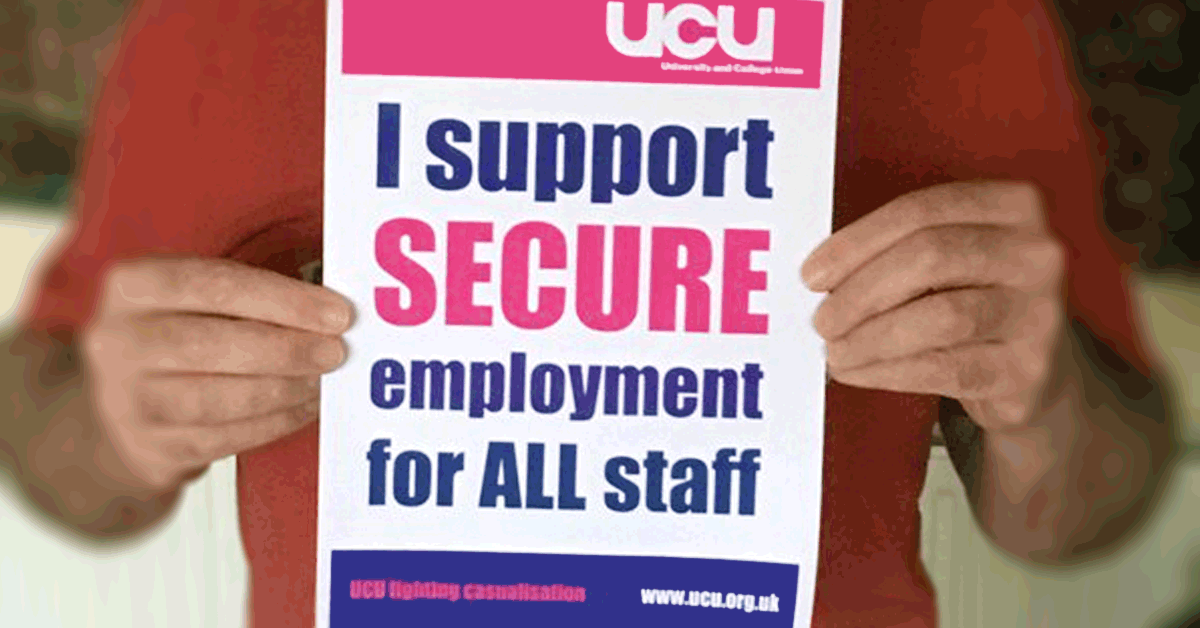Supreme Court rules in favour of union in six-year battle over redundancies
29 April 2015
The Supreme Court has today ruled that the University of Stirling broke the law when it let staff on fixed-term contracts go without consulting unions.
The court found that the university had been wrong not to include the fixed-term staff in a redundancy consultation and backed UCU's view that employers should have had to consult with the union where 20 or more fixed term contracts were coming to an end.
The judgment means the Stirling staff, and other fixed-term employees, could now be entitled to up to 90 days' pay.
The University of Stirling proposed to make 140 job cuts in 2009. But while the university undertook the statutory 90-day redundancy consultation with unions over the possible loss of the permanent jobs, it refused to include the fixed-term staff in that process.
UCU said the ruling was a vindication of its efforts to prove that staff on fixed-term contracts had the same rights as their permanent colleagues. The union had argued that groups of more than 20 fixed-term staff should be accorded the same right to be part of a collective redundancy consultation process as their permanent colleagues.
The law on collective redundancy was changed by this government in April 2013, which means universities do not now have to include fixed-term staff in a collective redundancy consultation. However, today's ruling means that the union, on behalf of staff on fixed-term contracts who were dismissed without proper consultation before that date, can make a claim for up to 90 days' pay as compensation for their employer's failure to consult.
UCU general secretary, Sally Hunt, said: 'Today's ruling by the Supreme Court is vindication of the union's determination that fixed-term workers should be on an equal footing with their permanent colleagues.
'It has taken six years but now the highest court in the land has agreed with us that these workers should not have been subjected to the hire and fire culture that the University of Stirling believed was appropriate for them at that time.
'We are optimistic today's decision will have financial implications for fixed-term staff at other universities who were part of claims we have lodged. We will continue to campaign to have the law reversed so casual staff in our universities are afforded much better protection.'
- PrintPrint this page
- Share



Comments